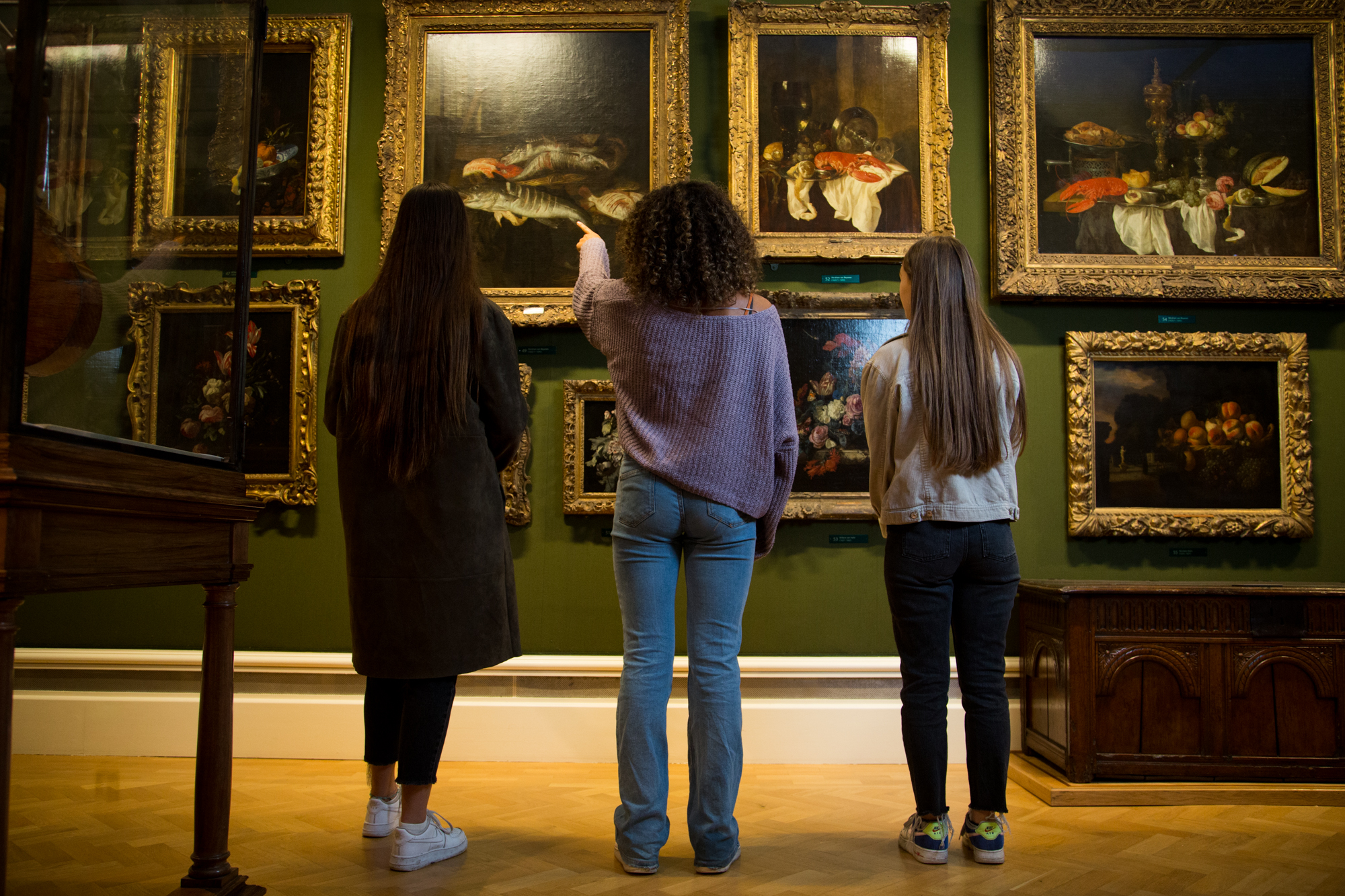
Young people will help create an ‘online museum’ as a way of improving their mental health, as part of a new and ground-breaking £2.61m research project.
The project, known as ORIGIN (Optimising cultural expeRIences for mental health in underrepresented younG people onlINe), is hosted by Oxford Health NHS Foundation Trust, led by researchers from Oxford University and funded by the National Institute for Health and Care Research (NIHR).
It will run from 2023-2028 and is a collaboration between NHS Trusts, UK universities, and is partnered by museums and charities. The study involves diverse young people aged 16-24 co-designing an online arts and culture intervention aimed at reducing anxiety and depression.
Its effectiveness will then be tested in a trial of nearly 1,500 young people, including some of the most underrepresented young people, specifically LGBTQ+ and autistic young people, ethnic minorities and those who live in some of the most deprived areas of the UK, including Cornwall, Liverpool, Sheffield and Blackpool and those on NHS waiting lists for mental health support.
REDUCED NEGATIVE FEELINGS
ORIGIN builds on preliminary research in which an online cultural experience called Ways of Being was co-designed and tested for mental health in young people. Despite limited time and resources in developing Ways of Being, it was enthusiastically received by young people and reduced negative feelings when compared with a traditional museum website.
Dr Rebecca Syed Sheriff, an NHS consultant psychiatrist and senior clinical researcher at Oxford University, led the preliminary work and is leading this programme. Rebecca said:
“Most mental health problems start before 25, yet young people are the least likely to receive mental health care, with some groups such as ethnic minorities even less likely. Much of the support currently offered by health services, such as medication and talking therapies are inaccessible and unacceptable to many of the young people who need it most.
“Online support can be more accessible and this exciting project gives us the chance to work with diverse young people on their own terms to co-design an intervention that young people are engaged by and believe in.
“This programme could have significant implications for how arts and culture are used to improve the mental health of young people in the future in a way that is engaging and accessible across diverse groups.”
Professor Kam Bhui, from Oxford University and co-lead of the programme, said: “There is enormous potential for creative and digital methods to authentically capture young people’s experiences and co-design interventions to prevent poor mental health. There is a massive treatment gap which we hope to fill.
“ORIGIN complements other pioneering programmes in the Department of Psychiatry on creative arts as empowering intervention for young people. The research offers a new paradigm of impactful research in partnership with the Oxford Health Biomedical Research Centre (BRC) and NIHR Thames Valley and Oxford Applied Research Collaboration.”
Helen Adams, from Oxford University’s Gardens, Libraries and Museums, which is partnering on the project, said:
“In our previous research, young people told us they want to connect with the human experiences of different people across the world and throughout history, good and bad, and told from different perspectives.
“Museums and other cultural institutions have the potential to meet this need but recognise that many stories embedded in their collections of artworks and artefacts are yet to be unlocked. Museums strive to create safe and inclusive spaces both in person and online, but know they are not always seen as accessible or relevant by many young people.
“We are really excited to be part of this project to challenge our ways of working, and to find out more about the ways in which arts and culture can help enrich and improve the mental health and wellbeing of young people, potentially encouraging lifelong engagement.”
As well as co-designing the intervention, diverse young people will be an active part of the research team, and will help shape the research and interpret the findings. The advisory board for the project will include young people, teachers, carers, charity workers, social workers, health professionals and people who work in arts and culture.
Louise Chandler, 21, worked on the previous Ways of Being study and will be involved in the implementation of Origin. She said:
“It felt powerful to have such agency over the preliminary project and to know that what we contributed really made a difference. It benefited my mental health to know that I was involved in a project so meaningful.
“This project is a really new and exciting way of working, not only because young people are co-producing the research and the intervention – but also because it will be reaching under-represented groups such as autistic and LGBTQ+ young people.
“I wish something like this would have been available to me when I needed support and I hope it paves the way for young people to be more involved in mental health research.”
Find out more about the Ways of Being intervention produced as part of the Online Active Community Engagement (O-ACE) project.
PARTNERS
Collaborators on ORIGIN include the University of Liverpool, University of Sheffield, Sheffield Hallam University, University College London, University of Plymouth, University of Cambridge, London School of Economics. Partners include National Videogame Museum, National Museums Liverpool, Cornwall Museums Partnership, Cornwall Partnership NHS Foundation Trust, Cornwall-based Making Waves, Dreadnought and Speak Up Cornwall, and Imagineear.
To find out more and be part of the Origin network sign up to our mailing list by emailing: [email protected]

